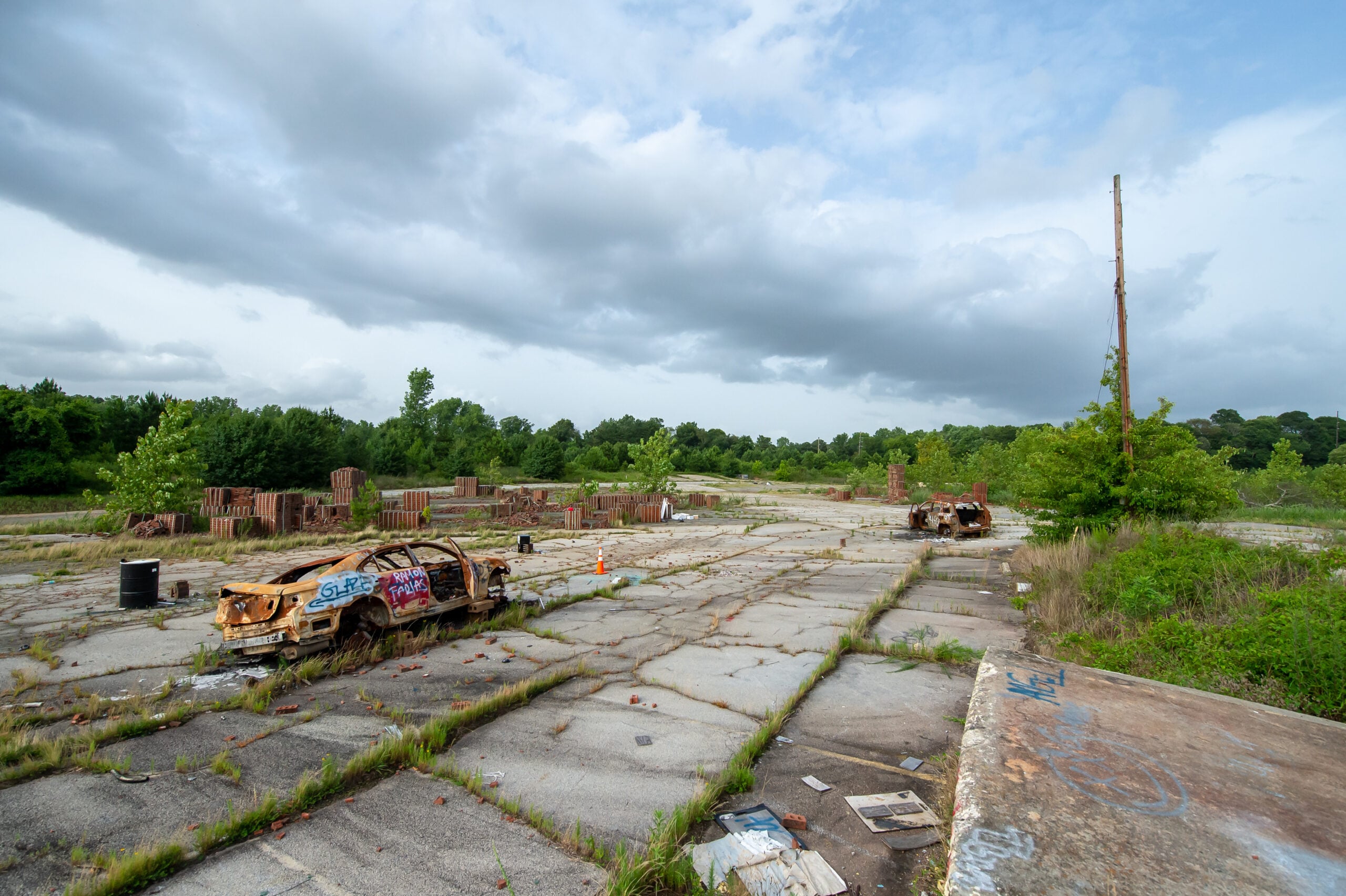Rail terminal at Atlanta’s Chattahoochee Brick site canceled

The site, near the Perimeter and on the Chattahoochee River, had been the location of the Chattahoochee Brick Co., owned by former Atlanta Mayor James English. It relied on horrific work practices, using forced convict labor to create bricks.
Bita Honarvar / Special to WABE
Updated at 5:25 p.m. Thursday
Norfolk Southern is canceling its plans to build a rail terminal in northwest Atlanta on a site that had been the location of forced labor around the turn of the 20th century.
The company had announced it was pausing the project last weekend after the city of Atlanta asked a federal agency to intervene and stop the project.
Now, it says after stabilizing and securing the site, it will completely withdraw.
“We accepted from the beginning that we had a special responsibility to develop this site in a socially and environmentally responsible way, given the atrocities that once took place there,” James A. Squires, president and CEO of Norfolk Southern, said in a written statement.
“We believe our project presented an opportunity to create a long-overdue memorial to the painful legacy of the site, and at the same time reshape its future by building new river trails and putting the long-abandoned land back into productive use in a way that benefits the regional economy,” Squires said.
The site, near the Perimeter and on the Chattahoochee River, had been the location of the Chattahoochee Brick Co., owned by former Atlanta Mayor James English. It relied on horrific work practices, using forced convict labor to create bricks.
The laborers – mostly Black men – were forced to work, often having been convicted of petty crimes. They were beaten, people died there, and historians believe there are unmarked graves on the property.
Local advocates have pushed for a memorial to be built on the site, as well as a park and commercial or residential – just not industrial – development, as long as it’s environmentally responsible.
Norfolk Southern, which is moving its headquarters to Atlanta, had said it would create a memorial at the location, as well as trails, as part of its development. It was also doing environmental remediation on the property.
“We pride ourselves on being a good corporate citizen in the communities where we operate,” Squires said. “In this case, that means walking away from the project despite our very best efforts to work with the community on the responsible development of the site.”
Thursday’s announcement is the second time a rail terminal has stopped at this location. The owner of the property, Lincoln Terminal, had proposed a similar project, but was denied a necessary permit in 2017. Norfolk Southern announced its plans to build the project and lease the land last year.
Donna Stephens, with the Proctor Creek Stewardship Council, led the fight against both developments. After Norfolk Southern’s decision to cancel its plans, she said she was in shock.
“It’s like a dream come true,” she said.
Stephens said her opposition to the rail terminal is about the history of the site, but also about concern for the communities near it now, and also for the environment.
She said she hopes a memorial there would make what happened during convict-leasing more widely known.
“Just to educate people about this part of history that most people still don’t know about,” she said. “It’s amazing how we go from the Civil War to the Civil Rights Movement, and there’s this void in the history.”
In a written statement, Mayor Keisha Lance Bottoms thanked Norfolk Southern for stopping the project.
“Thank you to Norfolk Southern for their cooperation in protecting this historic site,” Bottoms said. “Atlanta is singular among cities in its relationship with private and philanthropic sectors, and we appreciate our partners who act in the best interests of our communities.”








